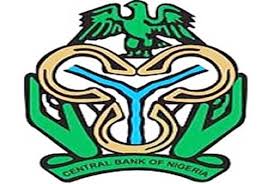The Central Bank of Nigeria (CBN), economic experts and other stakeholders in the financial sector have called for the establishment of special tribunal for the banking sector to adjudicate on litigations arising from financial transactions.
They said the action will reduce the timeframe for resolution of disputes in the sector, adding that it will engender confidence in the sector.
The CBN and other stakeholders made the case for the tribunal at the ongoing process to repeal and reenact the Banking, Insurance and Financial Institutions Act 2004 and Electronic Transaction Bill.
In his presentation at the hearing, CBN’s director, legal services department, Mr Kofo Salam-Alada called for the enactment of a law for the creation of a Credit Tribunal to strengthen credit recovery processes and enforcement of collateral rights, strengthening the framework for reporting for insider transactions as part of measures to boost credit administration processes in banks. “It is important that a banking Tribunal is established in Nigeria,” Salam-Alada stated.
Ministry of Finance, Budget and National Planning said it totally supports the Central Bank on the call for a Credit Tribunal for the banking sector. The minister of Finance, Budget and National Planning who was representated at the public hearing said: “We support what the CBN has presented. We don’t have any objection to it.”
The apex bank also asked the lawmakers to restrict remedy for successful action against revocation of license in line with international standards, enhancement of failing bank recovery and resolution tool kit to give more options for managing failing institutions and systemic crisis without recourse to public treasury. It also called for enhanced requirements for payments, settlement and clearing activities to address unfolding developments.
He called for review of framework for managing failing institutions in line with international standards to properly delineate roles for the agency tasked with managing failing banks and other financial institutions and those with responsibility for resolving banks and other financial institutions whose license have been revoked. “The law has to address this,” he added.
There has been a disagreement between the CBN and the Nigerian Deposit Insurance Corporation (NDIC) over whose responsibility it is to manage failing banks and banks whose licenses have been revoked.
The CBN does the former as provided in the BOFIA while NDIC is saddled with the latter under the NDIC Act.
Supporting the CBN’s call, president of the Industrial Global Union, Issa Aremu said, “We need provisions to allow for special court to manage banking issues. We can’t allow for endless litigations that can undermine the banking sector.”
Also, Professor of Finance and capital markets at the Nasarawa State University, Uche Uwaleke said, “It is time we have special court for banking in this country. In those jurisdictions with special courts for banking affairs, asset quality is always high and non-performing loan rate is reduced.”
The head of the legal team at NDIC said there is need to look at supervision function of the CBN and NDIC. He said it was wrong for the NDIC to be alienated in its role of supervision and resolution of banks. “When a bank fails, it is NDIC that makes the payment. There is no need to appoint another person as the liquidator,” he said.
Deputy leader of the Senate, Rober Ajayi Boroffice who represented Senate President at the hearing said the banking sector constitutes a very critical infrastructure to move the nation forward.
“We have to find ways of living through the current tough times,” he said, adding that Banks and other financial institutions are central in the vibrations of the nation’s economy. He said the bill will determine how we shape our monetary policies.
Chairman, Senate committee on banking, insurance and other financial institutions, Uba Sani said the two bills are critical to economic stabilisation effort of the government. “The NASS is an institution driven by public interest. The Act is long overdue for amendment to maintain the health of the banking sector. We are not taking chances. We must remain vigilant and take the Nigerian banking sector to a greater height,” he added.


